Mark and Naomi are Canadian travellers and photographers. After spending an afternoon on a South Georgia beach with a few hundred thousand penguins, they started to rethink their roles as lawyers at the world’s largest law firm. It was there, in the middle of the South Atlantic, that they decided to focus more time and energy on their passion for photography and exploration.
Mark now works full-time as a commercial photographer, while Naomi practices in the area of legal ethics. Together, they seize every opportunity to travel and document their adventures.
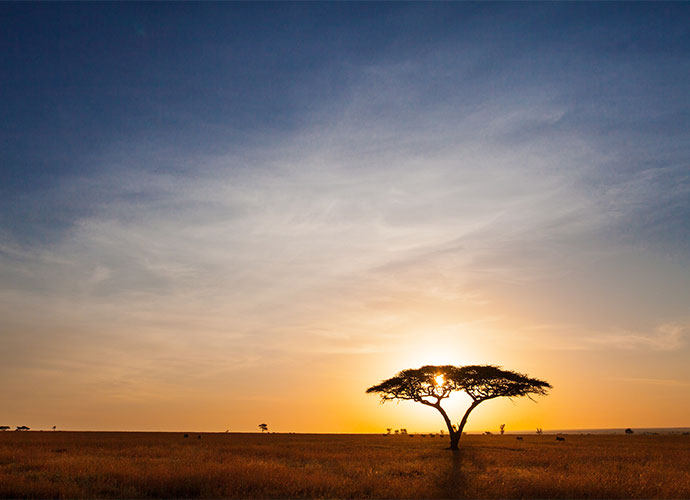
Before heading off on a trip, the couple often reach out to NGOs or charities operating at the destinations to set up opportunities to help make the type of changes that the locals want to see. Here, they showcase some of the ways in which they have connected with and given back to local communities while on the road.
Bhutan
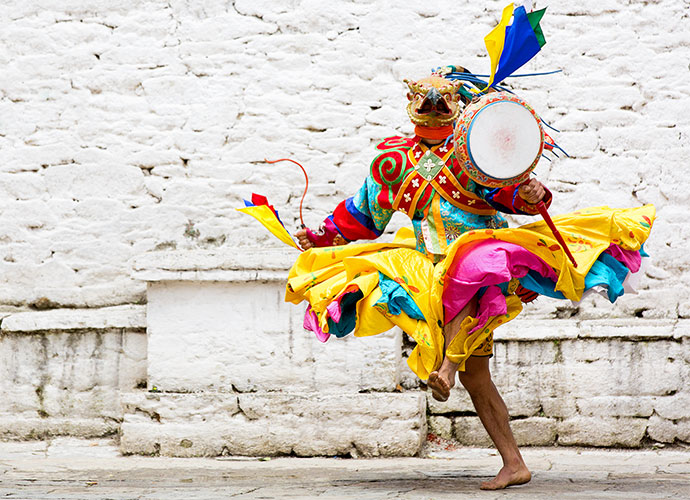
Bhutan is famous for eschewing the typical economic indicator (GDP) in favour of aiming for a national GDH – Gross Domestic Happiness. Despite sounding like a cliché, the slower pace of Bhutan’s culture and economy, and the value it places on personal relationships and the protection of nature, really did help us to realise that we should be more mindful at home.
As part of this enlightened approach by the body politic, Bhutan is marching swiftly, but mindfully, into its future. To that end, English is taught in most schools in an effort to prepare local children for participation in the global economy.
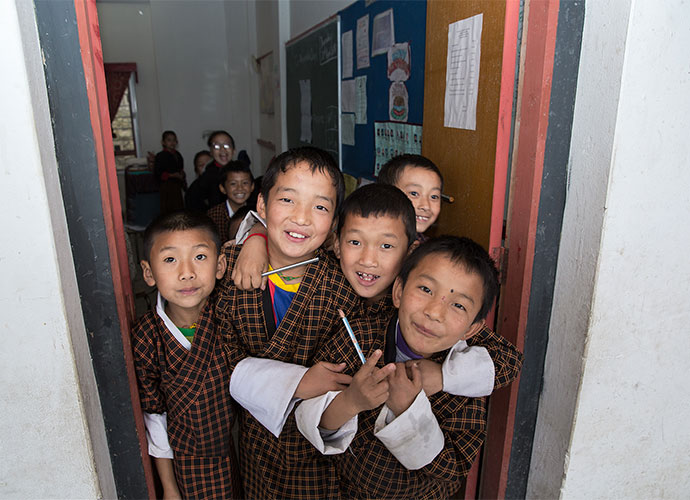

As English is not widespread in Bhutan, many native speakers are brought in from the UK, the US and Canada. While preparing for our trip, we connected with the Bhutan Canada Foundation (BCF) to see if we could help. The timing of our trip allowed us to visit several schools to take photos for the BCF to use in its promotional materials to attract even more teachers.
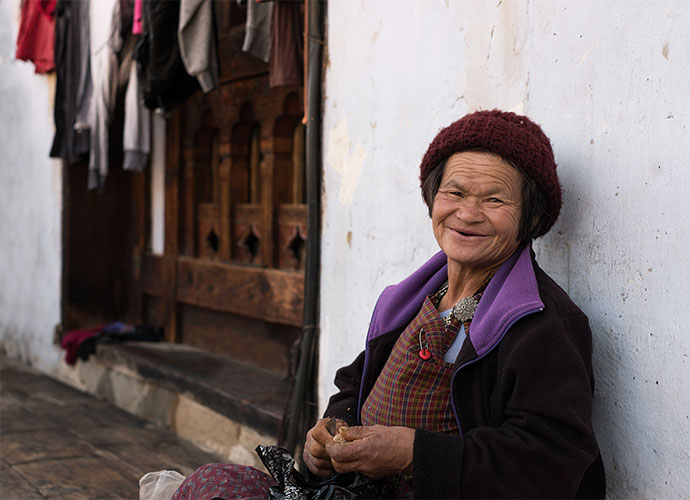
During our trip we also visited the Haa Valley, which only opened to tourism in 2002. Rather than stay in the swanky new lodge, we opted to spend the night with a yak-herding family instead, where we were invited to enjoy dinner. Thanks to Dolay’s cooking and Ugyen’s hospitality, we were lucky enough to try ema dashi (chilli and yak cheese) and ara (a local drink). Perhaps the highlight, however, was the chance to listen to angay’s (grandma’s) stories of what the valley was like 50 years ago. Of course, as photographers, we couldn’t leave without asking angay if we could take her photo.
South Georgia
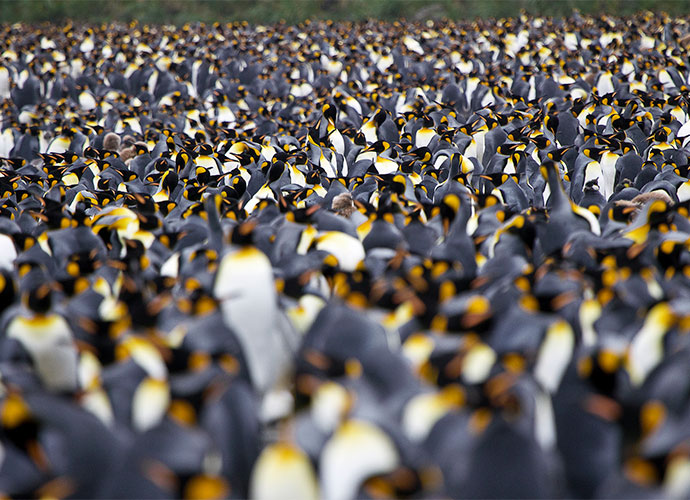
Although South Georgia was one of the main hubs for the whaling industry through much of the last century, it’s now a wild and untamed place, and the beaches are absolutely teeming with life. The rich waters of the South Atlantic provide enough food to support massive colonies of birds as well as amphibious and aquatic mammals.
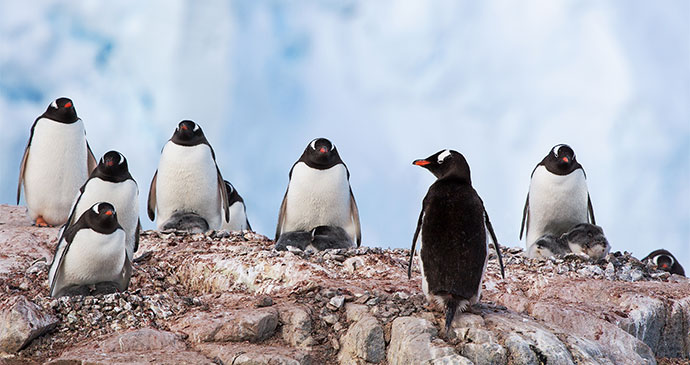
Sadly, however, the whalers imported rats to South Georgia, who would feed on the eggs and young of ground-nesting birds. The population exploded at a dramatic rate, to the point that it now threatens the indigenous birdlife found on the islands. Thankfully, owing to the efforts of The South Georgia Heritage Trust, the island has now been declared rodent-free – a huge achievement, but one that came at huge financial expense for the organisation.
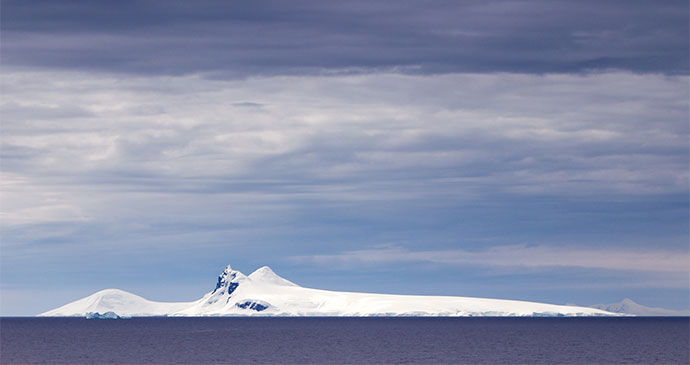
While visiting the islands, we were surprised to learn that branches of the trust had been set up in the UK and the US, but not in Canada. The moment we returned home we started working on a way to set up a charity to facilitate donations from Canadian travellers. Despite our considerable efforts, we were unfortunately unsuccessful in securing the pro bono legal services necessary to establish a Canadian branch. This hasn’t thwarted our efforts, though – our failed attempts at establishing a charity opened the conversation between us about what we could do on our future trips to help change the world, and we haven’t stopped talking about it since.
Rwanda
Until our visit to Rwanda, we had always tried our best to buy fair-trade or organic coffee and tea. However, after we sat down with the manager of a Kigali café to talk about the benefits of such certifications, our stance has changed. We were shocked to learn about the high cost of getting certified as fair-trade or organic – an expense that, for very small independent farmers, is too much to bear.
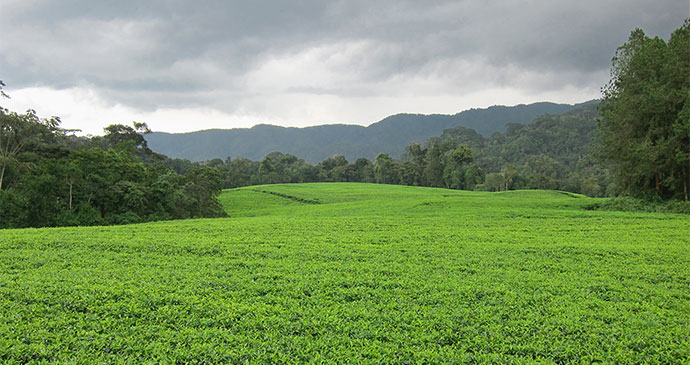
Without such a certification, there is no way for these farmers to sell in an organic market, even though they have never used pesticides or fertilisers. We’ve used this information to inform our buying choices and now spend more time considering a producer’s process than simply checking a label.
Before we arrived in Rwanda, we had heard about visitors having the chance to see traditional Intore (warrior) dance. We were in two minds about doing this as part of a tour as we were worried that it would be at best anachronistic, at worst exploitative. However, we did a bit of research and found a local school that had a competitive dance team and arranged to make a donation to the school as part of our trip in order to see a practice performance.
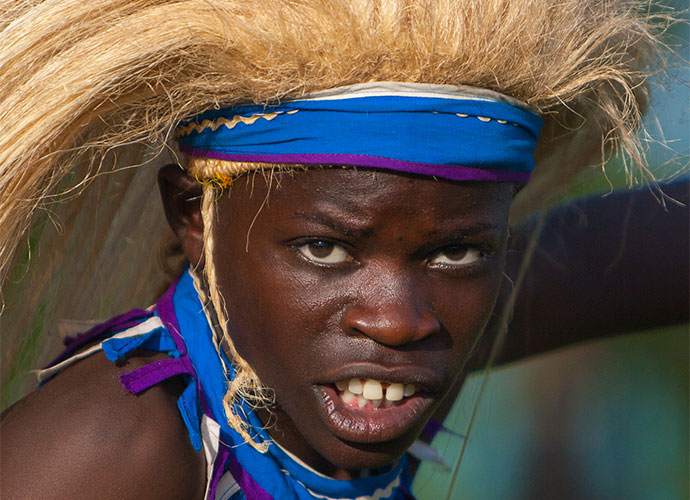
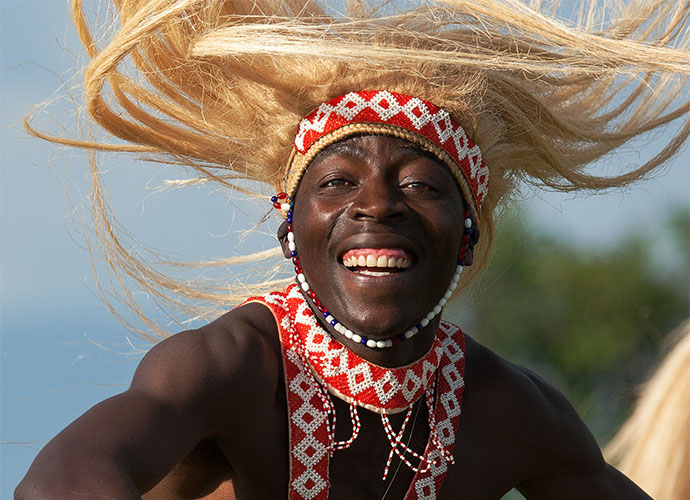
We couldn’t have been happier. The troop was incredible. Before seeing them, we were still concerned about exploiting an ancient tradition for our entertainment. But, when the students started dancing, the pride and joy they showed in sharing their culture with us was palpable. With just a little bit of effort, we were able to share an authentic cultural moment.
Uganda
During our drive to Bwindi to see mountain gorillas, we passed a local health clinic. We asked if it was possible to visit the community health clinic to learn about the type of work that they do.
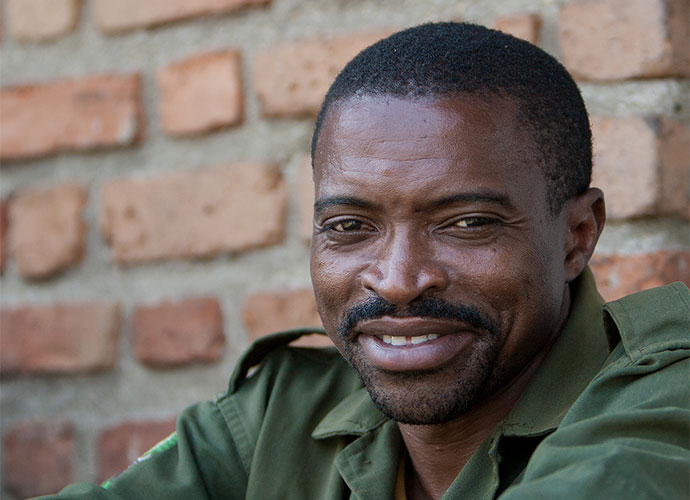
We were lucky enough to get a tour of the clinic and luckier still to get a moment with a few of the nurses and doctors to talk about fundraising. Since then, we’ve taken every opportunity to recommend a similar tour to friends and we have all donated to help for the purchase of mosquito nets and nurse training.
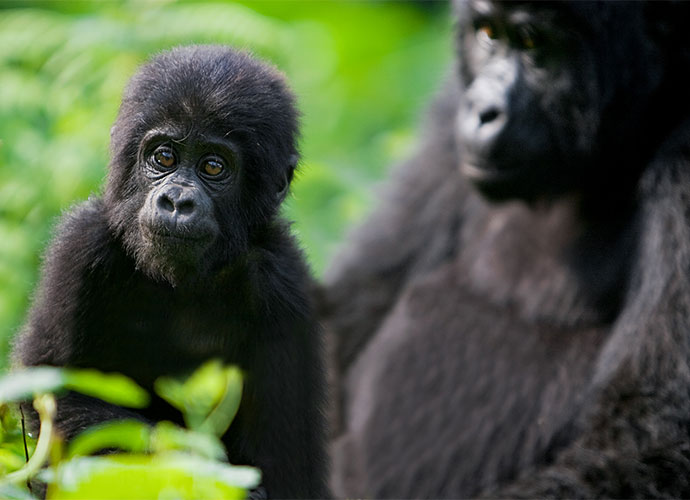
To see more of Mark and Naomi’s work, check out their website or follow them on Instagram.